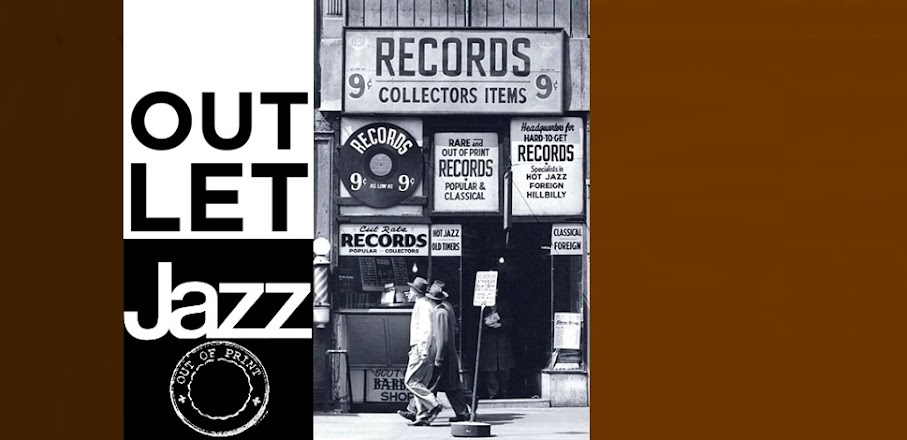Marty Paich is one of the unsung heroes of West Coast Jazz. His personal lifestyle had none of the flamboyance and eccentricity of his long-time friend and collaborator Art Pepper’s, and his years of extended labors in the studios make it all too easy to overlook his contributions to jazz. *Ted Gioia*
Marty Paich (1925-1995) became interested in jazz in 1940 when he heard the Jimmy Lunceford band play. As a student of the distinguished Mario Castelnuovo-Tedesco, he absorbed the fundamentals of harmony and counterpoint. In 1951, with a Masters Degree in Composition he became one of the most sought after arrangers of the music business in the Los Angeles scene. These recordings are not only further evidence of the talent, versatility and imagination of Marty Paich, but also a showcase for the more academic approach to jazz scoring he promoted within the boundaries of the West Coast school of jazz during the mid Fifties. *Jordi Pujol*
West Coast stylings, with marty paich scores and piano, feature the "Four Brothers" sax section sound. Tenors here are Jimmy Giuffre, Bob Cooper, Bob Enevoldsen (also on valve trombone), Harry Klee (also on alto and flute). Jack Du Long is on baritone, etc. None of the contributions is out-standingly different, and there is no program telling who plays where. *Billboard, November 10, 1956*
In 1954, and perhaps as an extension of his time with Shorty Rogers, Marty began his writing experiments for larger small groups or what he would ultimately call "a band within the band". Octets and dek-tettes (10-piece groups) would become the vehicle for such arranging platforms beginning with Tenors West. Paich's work on this recording reflected one of his greatest strengths as an arranger: making relatively small groups sound like full-size orchestras.
Employing Bob Enevoldsen on everything from valve trombone to vibes to tenor saxophone, Harry Klee on bass as well as alto flute using the piano’s upper register to play unison lines in the upper horn or trumpet register, Paich develops orchestral colors that are reminiscent of everything from the Woody Herman four brothers sound (from which, no doubt, the name —Tenors West— is derived) to the yet-to-come Henry Mancini hip, slick and cool Peter Gunn resonances. A trumpet plays under a baritone sax, a bass plays "lead" in a "choir" made up of trumpet, flute and piano, and rhythmic riffs and motifs punctuate backgrounds everywhere. On this recording, Marty is the musical equivalent of a kid in a toy store trying everything in every combination.
In addition to eight originals, Paich especially employs the "four brothers tenor sound" using three tenors and either Harry Klee’s flute or a baritone sax played by Jack Dulong to create beautiful renditions of three standards: "There’s No You", "Take The 'A' Train", and Mulligan’s "Line For Lyons", breathing new life into these familiar melodies with his intriguing arrangements. Incidentally, Conte Candoli on trumpet has never sounded better as his usual, fiery self. Also, if you’ve ever wondered what the “Chet-Baker-side” of Conte would sound like, this is the album to checkout. *Steven Cerra*
Side 1
1 - Tenors West
(Paich)
2 - There's No You
(Adair, Hopper)
3 - The Dragon
(Paich)
4 - Shorty George
(Durham)
5 - Paichence
(Paich)
6 - At The Marti Gras
(Paich)
Side 2
7 - Take The "A" Train
(Strayhorn)
8 - Ballet Du Bongo
(Paich)
9 - Line For Lyons
(Mulligan)
10 - Jacqueline
(Paich)
11 - Con-Spirito
(Paich)
Marty Paich (piano); Conte Candoli (trumpet); Bob Enevoldsen (tenor sax, valve trombone); Harry Klee (flute, alto sax, tenor sax); Jimmy Giuffre [#2, #4, #7, #9], Bob Cooper [#1, #3, #5, #6, #8, #10, #11] (tenor saxes); Jack Du Long (baritone sax); Joe Mondragon (bass); Frank Capp [#2, #4, #7, #9], Art Mardigan [#1, #3, #5, #6, #8, #10, #11] (drums); Jack Costanzo [#8](bongos).
Recorded at Capitol Studios, Hollywood, California, February 1 and 2 (#1, #3, #5, #6, #8, #10, #11), and November 10 (#2, #4, #7, #9), 1955.


Hi, blbs! Thank you so much!!
ReplyDeleteMuchas gracias blbs. Gran trabajo.
ReplyDeleteExcelente, muchísimas gracias
ReplyDeleteMuchas gracias
ReplyDeleteThank you, blbs!
ReplyDelete